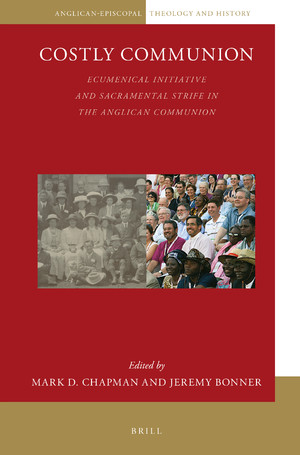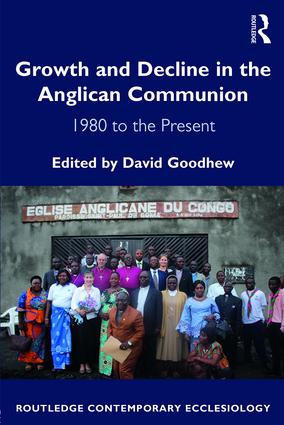"Breaking the Logjam": Post-Realigment Pittsburgh Beckons?
After a hectic few weeks in which two of Pittsburgh’s ACNA parishes (St. Philip’s, Moon Township, and Somerset Anglican Fellowship) elected to reach individual agreements with the TEC Diocese of Pittsburgh, I today attended a meeting at Church of the Ascension called to discuss possible ways forward. There was broad agreement that while individual circumstances differ (parishes whose deed is held by the Trustees of the Diocese of Pittsburgh – the majority – as compared with those who hold their own deed or who only have acquired property since realignment), it is essential that negotiation be, to the greatest extent possible, on a global basis. Following prayers led by Canon Missioner Mary Hays, the floor was turned over to the rectors of the two largest parishes in the Diocese – Jonathan Millard of Church of the Ascension and Geoff Chapman of St. Stephen’s, Sewickley, both members of the Standing Committee.
Reviewing the sequence of events that led to Bishop Price’s letter of February 17, Jonathan Millard noted the concerns about the secrecy surrounding the settlement with Somerset Anglican Fellowship, which had prompted Archbishop Duncan’s subsequent letter to ACNA clergy requesting that they not enter into discussions without at least informing the leadership of the ACNA Diocese of their intention. The letter from Bishop Price, he insisted, must be taken as a genuine commitment to a serious conversation without prejudice, but it is equally clear that there is a strong desire on the TEC Diocese’s part to abide by its canons, as the reference to Diocesan Canon XV.6 makes clear. Jonathan gave it as his opinion that provided engagement with the conversation was sincere, he doubted whether any attempt would be made to take advantage of the March 13 deadline (such as an attempt to replace clergy or vestries in the affected parishes). There were three criteria that he viewed as critical to any settlement: that it allow the parishes to survive; that it allow the ACNA Diocese to flourish as an integrated unity; and that everybody (including TEC leaders) are permitted to observe their fiduciary responsibilities.
Speaking about the diocesan-level negotiations, Geoff Chapman explained that while he understood concern about an excessive degree of secrecy, some confidentiality could not be avoided if progress was to be made. Their own informal exploratory conversations, he said, had been prayerful, friendly, honest, respectful, and with a considerable degree of concern shown on both sides. In his view, the fact that – after two years of stasis – we have begun to move towards negotiations is testimony to God “putting his foot on the accelerator.”
More importantly, he urged people to think about the core values that they wished the ACNA Diocese of Pittsburgh to embody. Not only do all the ACNA parishes need to work together, but they need to create the sort of positive environment in which change can happen. This was not a time, he said, for “trash talking” on blogs, but a time to reach out and embrace those from whom realignment has separated us, so that “we can be at our best and they can be at their best.” From the perspective of the 2005 Stipulation negotiations can only be on a parish-by-parish basis, but he believed that there is hope that some form of global agreement can ultimately be reached that observes the letter of the law without abandoning individual parishes to their fate.
Publicly, the advice from the leadership in the ACNA Diocese is that those who believe that they can walk away from their property without impairing their ministry should do so (though not by turning over their property to the TEC Diocese in advance of a general settlement – the ACNA Diocese Board of Trustees can hold title in the interim), yet not all parishes yet believe that this is their situation and the issue will not be forced (especially since every parish now holds title under ACNA canons, and can’t be forced).
Given the circumstances, this gathering of more than one hundred lay and clerical leaders was comparatively positive, although there was some concern expressed both that the Diocese keep individual parish leaders informed on the progress of negotiations and spell out what it wanted the latter to do at each stage. The tone set by Geoff Chapman and Jonathan Millard, however, was commendable for what it conveyed about the need to separate courtroom confrontation from personal relationship.
Surely that is the essence of today’s appointed Gospel:
But if anyone strikes you on the right cheek, turn the other also; and if anyone wants to sue you and take your coat, give your cloak as well; and if anyone forces you to go one mile, go also the second mile. Give to everyone who begs from you, and do not refuse anyone who wants to borrow from you. You have heard that it was said ‘You shall love your neighbor and hate your enemy.’ But I say to you, love your enemies and pray for those who persecute you, so that you may be children of your Father in heaven; for he makes his sun rise on the evil and on the good, and sends rain on the righteous and the unrighteous.









